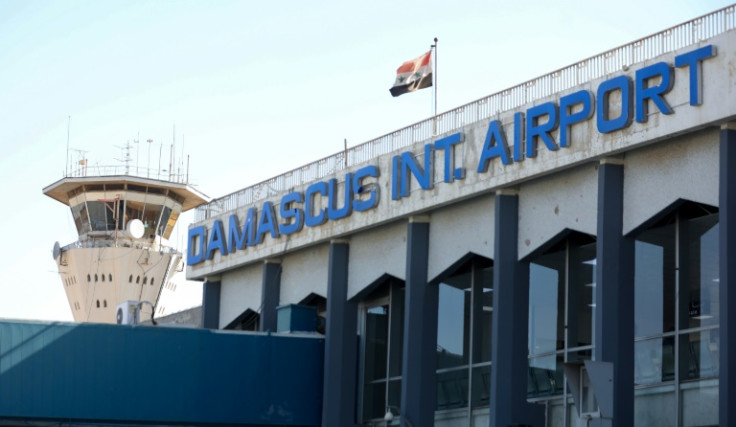US Deploys Fighter Jets To Israeli Airbase Amid Rising Tensions With Iran
KEY POINTS
- F-15s will conduct strike drills with Israeli fleet of F-35 stealth fighters
- Israel plans on expanding joint activities with U.S. military in the Middle East
- Israel affirmed it will not allow its arch-foe Iran to gain foothold in Syria
As tensions with Iran continue to escalate, the U.S. Air Force deployed six fighter jets to an Israeli Air Force base Monday with the aim of carrying out joint deep strike drills.
As part of the deployment, the six F-15s will conduct deep strikes drills with an Israeli fleet of F-35 stealth fighters at the Nevatim airbase in southern Israel this week, The Times of Israel reported, citing the Israeli Air Force. Also participating in the joint exercise will be a squadron of intelligence-gathering Gulfstream G550 planes.
The deployment of the U.S. fighter jets is a part of a doctrine called "agile combat employment," the outlet added. It involves dispersing aircraft at forward operating positions in allied countries, to allow quicker response and deprive enemy forces of the ability to damage the U.S. Air Force assets by striking its traditional overseas bases.
After his visit to the U.S. in November 2022, Israel Defense Forces (IDF) chief Aviv Kohavi announced the expansion of joint activities with the American military in the Middle East. Following the visit, the IDF and the U.S. military carried out joint aerial exercises, simulating strikes against Iran and its regional terror proxies.
Meanwhile, the U.S. jets were deployed on a day when a series of Israeli missile strikes targeted Damascus International Airport overnight on Monday, killing two soldiers and putting Syria's main airport temporarily out of service.
"At about 2 in the morning, the Israeli enemy carried out an air attack with barrages of missiles from the direction northeast of Lake Tiberias, targeting Damascus International Airport and its surroundings," state-run Syria National News Agency (SANA) reported.
While the Israeli army hasn't commented on the operations, it repeatedly said that it will not allow its arch-foe Iran to gain a foothold in Syria. The attacks were reportedly aimed at countering the presence of Iranian units and fighters associated with the Lebanese militant group Hezbollah in Syria as well as bringing an end to the flow of weapons through the country's airports and ports.
This is not the first time the Syrian airport has been targeted. Last year, Israel intensified attacks on Damascus and other civilian airports to cease Tehran from using them to transport arms to its allies in Syria and Lebanon, including Hezbollah.
Israeli airstrikes caused significant damage to the Damascus airport in June 2022, putting it out of service for two weeks. Similarly, in September 2022, Israeli airstrikes targeted Aleppo's international airport. Previously in December 2021, Latakia port, Syria's main commercial hub, was hit by airstrikes, resulting in a large fire and damaged containers.
Amid growing uncertainty about the Iran nuclear deal, Israel has increased efforts to create a credible military threat against Tehran's nuclear sites. Israeli officials also warned of Iran-linked proxies across the region, including Hezbollah in Lebanon, the Houthis in Yemen, and other groups based in Syria.
While Iran claims its nuclear program is peaceful, international experts have warned that Tehran has enough 60% enriched uranium to create fuel for at least one nuclear bomb. Meanwhile, with opposing attempts to revive a nuclear agreement between Tehran and world powers, Jerusalem and Washington have pledged to stop Iran from developing a nuclear weapon.

© Copyright IBTimes 2024. All rights reserved.






















